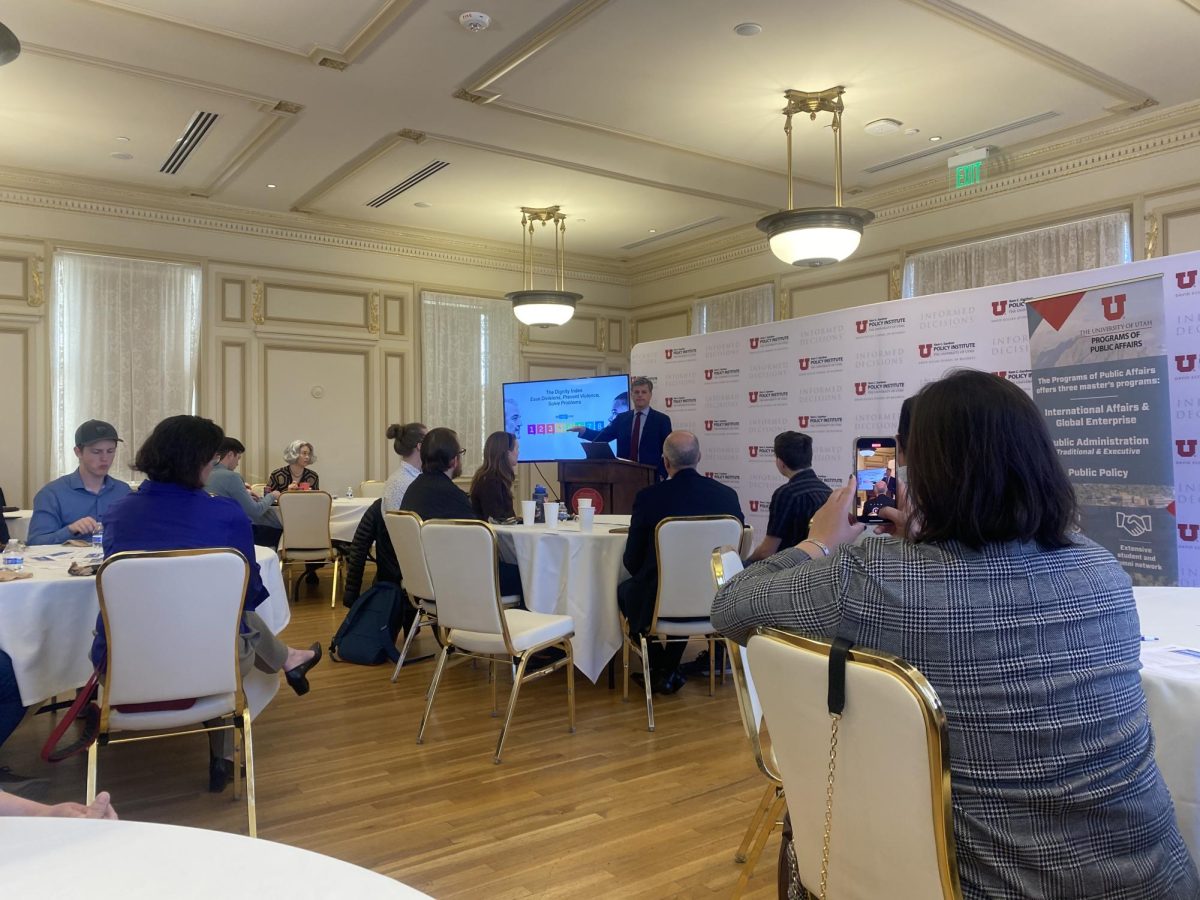
Brent Uberty / The Daily Utah Chronicle
A panel of community doctors and others who work with refugees discussed the health care issues faced by refugees in the United States at a panel discussion Tuesday in the Eccles Health Science Education Building.
According to the panel, one of the biggest medical challenges faced by refugees is mental health issues.
Dr. Mara Rabin, director of the Utah Health and Human Rights Project, said the ailing economy can have a negative effect on mental health.
“It’s terrifying, you’re basically expected to pay back the airline ticket the U.S. government purchased for you, pay your rent shortly after arrival,” Rabin said. “Not having a job can cause a lot of distress.”
Many refugees have also been tortured and are experiencing Post Traumatic Stress Disorder.
In some countries, only severe mental health issues such as schizophrenia are treated so there is a stigma attached to being treated for mental health issues. Rabin said she never uses the words mental health when talking to her patients and that helps them more open to treatment.
Rachel Sanders, who works with refugees at the Hser Ner Moo Community Learning Center said one-on-one therapy is also a foreign concept and causes a cultural divide. She said a strong community can often be more helpful than therapy.
Another issue is refugees who were doctors in their home countries have to take tests or go back to medical school to practice in the United States.

Brent Uberty / The Daily Utah Chronicle
“It is not always the academic things they are looking at, I think medicine is the same here and in Iraq,” said Dr. Sara Al-Obeydi, an Iraqi pediatrician who is at the U in the master’s of public health program. “But I think the quality of training is different from country to country.”
To obtain a medical license, applicants need to have a year of medical experience in the United States. Al-Obeydi said her medical experience in Iraq was not taken into account when she was applying for a license.
“People will realize that experience is similar here and back home,” Al-Obeydi said.
She said it is difficult for refugees to find opportunities to find residencies to gain that experience, and the current system needs to be changed.
“There is no pathway for individuals who have been professionals in their prior country. There is no professional pathway for them to regain their licensure other than the exams,” Rabin said. “It would be great if the University of Utah would develop an externship program for former physicians to be able to get started in their academic setting that will them to get letters of recommendation from an academic center maybe even consider having one spot a year for a resident because these are individuals who are going to be extraordinary physicians in this county and have the advantage of also having knowledge and language of another country or culture.”
The panel said it is important to explain to refugees how the American system works, because it works differently than in their home countries.
Ghaida Al-Barzinji, who works as an Arabic interpreter with the International Rescue committee, said she sometimes needs to not only interpret but also clarify the medical system for the refugees.
“A further extension would be as a culture broker,” Al-Barzinji said. “So, if the patient wants to know why he can’t see a specialist the next day you are explaining, ‘Well in the U.S. this is how the [medical system] works.’ These are the steps that you take you see a primary care first and then the primary care will refer to a specialist and you can’t schedule tomorrow you will not be seen tomorrow because of scheduling difficulties.”















